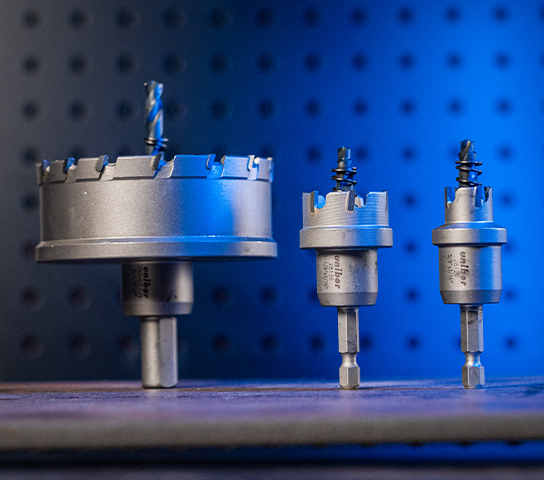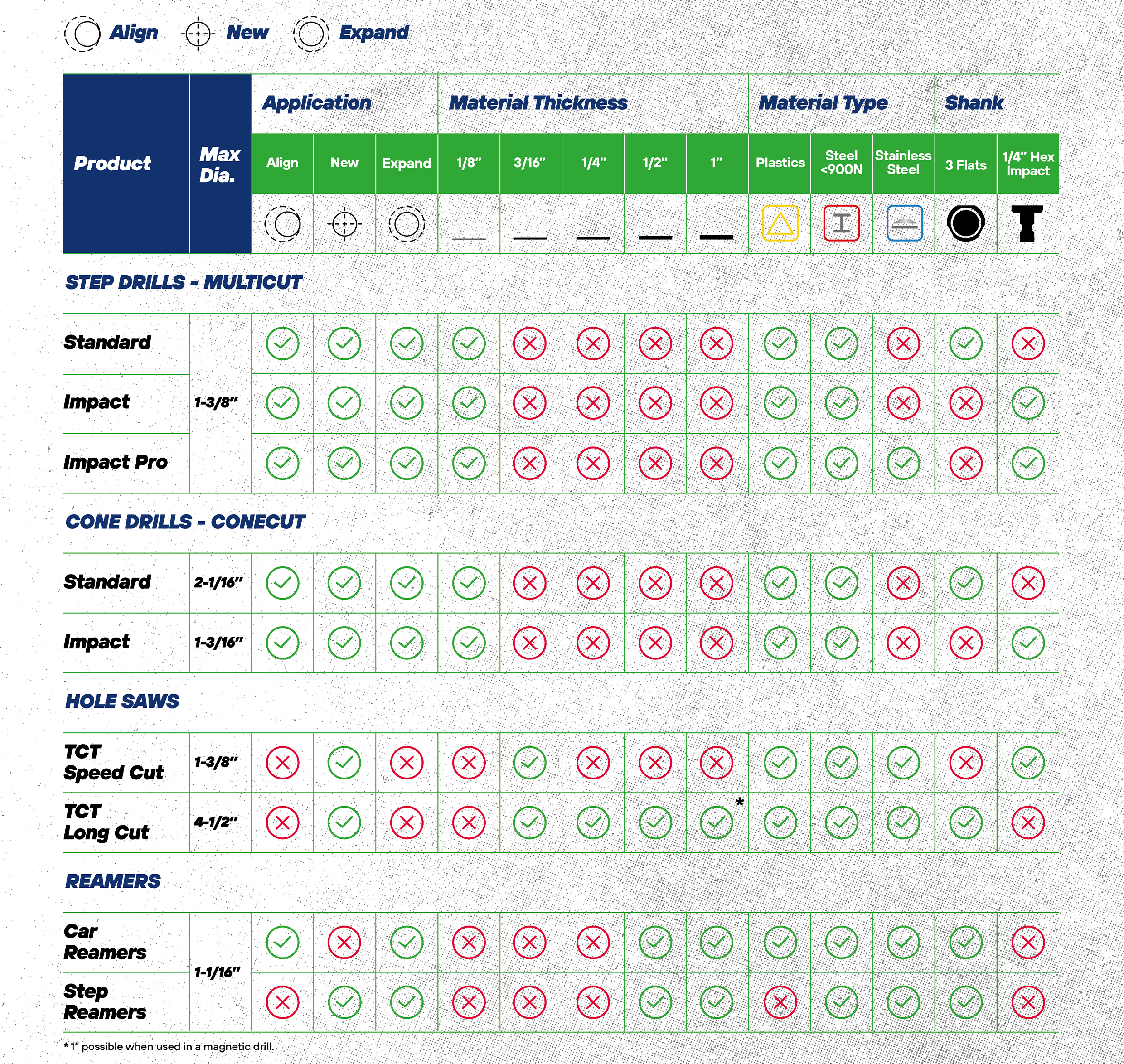
Why Use A Unibor Hole Saw?
-
Tungsten carbide teeth drill up to 30% faster and last 10X longer than bi-metal Holesaws
-
1/4” impact shank for use in impact drivers and battery drills
-
Spring loaded for positive core ejection
-
Perfect for working on stainless steel, construction steel, truck chassis and electrical applications

Learn All About Tools.
Want to learn more about metalworking products? Use our search engine to find out more about the range we offer.

Hole Saw FAQ’s
-
What is a hole saw?
Hole saws are a useful alternative method for drilling holes as opposed to using a drill bit. Unlike a drill bit, a hole saw cuts around the perimeter of the intended hole, directly cutting significantly less material.
-
Why use a hole saw over a drill bit?
Hole saws offer a number of advantages over traditional drill bits in hole cutting applications, such as:
- A Cleaner Finish: The pilot drill bit of a hole saw offers significant precision, allowing the core to be cut and removed accurately. If working with wood, a quality hole saw will avoid splintering the target material during the cut.
- Can Be Used On a Variety of Materials: The aforementioned variety in hole saw materials gives them great flexibility; from thin sheet metal to thicker alloys and stainless steel, there is a holesaw for almost any surface.
- Hole Sizes: Hole saws are an excellent option when looking for more diameter in a cut, as hole saws can cut to a wider diameter than a traditional drill bit.
-
Why do I need a pilot pin?
A pilot bit guides the hole saw to the area being drilled and ensures that the saw stays on course until the hole is finished. Essentially, it anchors the hole saw and prevents deviation during the cutting process.
This therefore prevents the hole saw from creating an irregular cut, keeping the finish of the hole neat. Essentially, the pilot bit provides stability to ensure the cut is performed properly.



